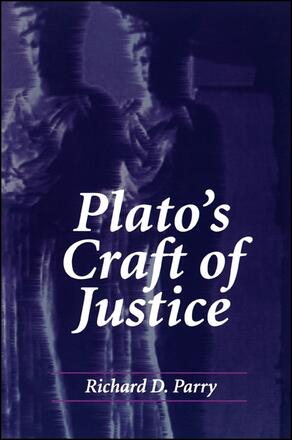
Plato's Craft of Justice
Alternative formats available from:
Shows that Plato's middle dialogues develop and extend, rather than reject, philosophical positions taken in the early dialogues.
Description
This book traces the development of Plato's analogy between craft and virtue from Euthydemus and Gorgias through the central books of the Republic. It shows that Plato's middle dialogues develop and extend, rather than reject, philosophical positions taken in the early dialogues.
Richard D. Parry is Fuller E. Callaway Professor of Philosophy at Agnes Scott College.
Reviews
"Plato's Craft of Justice deals with the central concerns of Platonic ethical philosophy and brings out their coherence in an unusually rigorous way. It also adds Plato's voice to the current exploration of what has come to be called 'virtue ethics. ' Virtue ethics has recently experienced a renascence of interest among contemporary ethical philosophers and, more widely, in current discussions of American society and values. The book illuminates a wide selection of the central philosophical concerns of Plato's most popular and widely read (middle) dialogues, including his metaphysical, epistemological, political, and aesthetic notions.
"I was particularly impressed by the way the author drew connections between key dialogues and their principal ideas. It makes the reader 'think along with Plato' in a rigorous and comprehensive way, opening new insights into well-known texts and giving new twists to established interpretations.
"There is nothing that does precisely what this book does. Though the Platonic topics and texts are much discussed and the author draws on the best of contemporary scholarship, the author's reading is original in its totality. This is an excellent, persuasive book that will become a standard, must-read item in the field of Platonic interpretation. The fact that the subject is of great historical and contemporary significance appeals to me both as a reader and as a teacher. I would recommend it to any serious student of ancient philosophy. " — David E. Hahm, Ohio State University